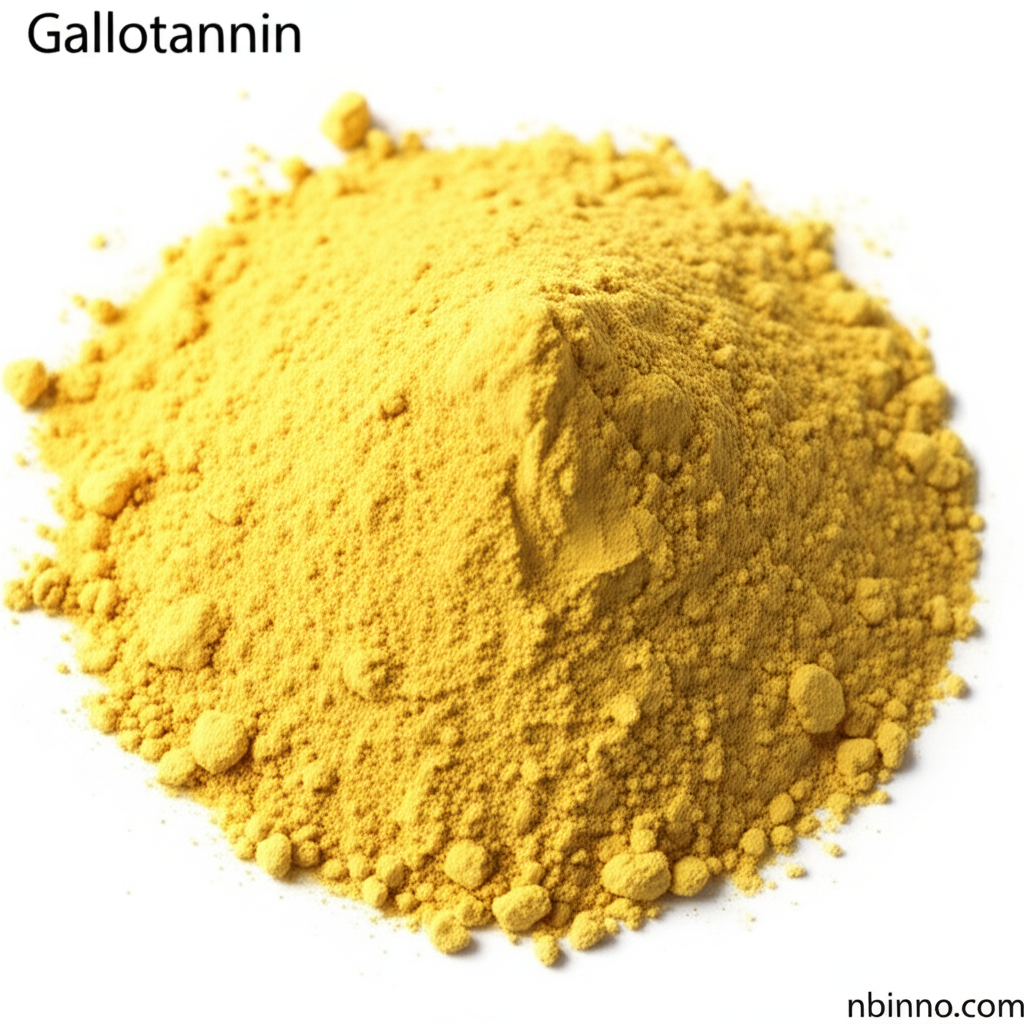Gallotannin (Tannic Acid) CAS 1401-55-4: Versatile Uses in Industry & Health
Discover Gallotannin (Tannic Acid), a natural polyphenol widely used across industries for its unique properties, from leather tanning to pharmaceutical applications.
Get a Quote & SampleUnlocking the Core Value of Gallotannin

Gallotannin (Tannic Acid)
Gallotannin, also known as Tannic Acid, CAS 1401-55-4, is a powerful naturally occurring compound extracted from plants. This polyphenol is celebrated for its unique chemical properties and diverse applications.
- Explore Gallotannin's strong astringency, a key property in many industrial processes.
- Understand how Tannic Acid exhibits high protein binding affinity, essential for leather tanning.
- Learn about its complexation with metal ions, vital for effective dyeing processes.
- Discover the significant antioxidant properties of Gallotannin, beneficial in various formulations.
Key Advantages of Gallotannin
Enhanced Product Quality
Gallotannin's unique properties, such as its ability to form stable complexes with proteins, lead to enhanced product quality, particularly evident in the durable and flexible materials produced through leather tanning.
Versatile Industrial Applications
The versatility of Gallotannin (Tannic Acid) allows its use across a wide range of sectors, from its role in effective dyeing processes as a mordant to its value in pharmaceutical formulations.
Natural and Environmentally Friendly
As a natural compound derived from plant sources, Gallotannin is biodegradable, making it an environmentally conscious choice for various chemical applications and sustainable manufacturing.
Key Applications
Leather Tanning
Gallotannin is crucial in the leather tanning process, transforming raw hides into durable materials by forming stable complexes with proteins, a core benefit of Tannic Acid in leather tanning.
Dyeing & Ink Production
In dyeing, Gallotannin acts as an essential mordant, fixing dyes to fabrics for enhanced color fastness and is also vital for producing stable pigments in ink manufacturing, especially for Gallotannin for dyeing fabrics.
Cosmetics & Skincare
Leveraging its astringent properties, Gallotannin is incorporated into cosmetic formulations for skin toning, inflammation reduction, and pore minimization, highlighting its value in Gallotannin cosmetic applications.
Brewing & Winemaking
Naturally present in grapes, Gallotannin contributes significantly to the color, flavor, and mouthfeel of wines, especially red wines, also aiding in stabilization, crucial for Tannic Acid in winemaking clarification.
